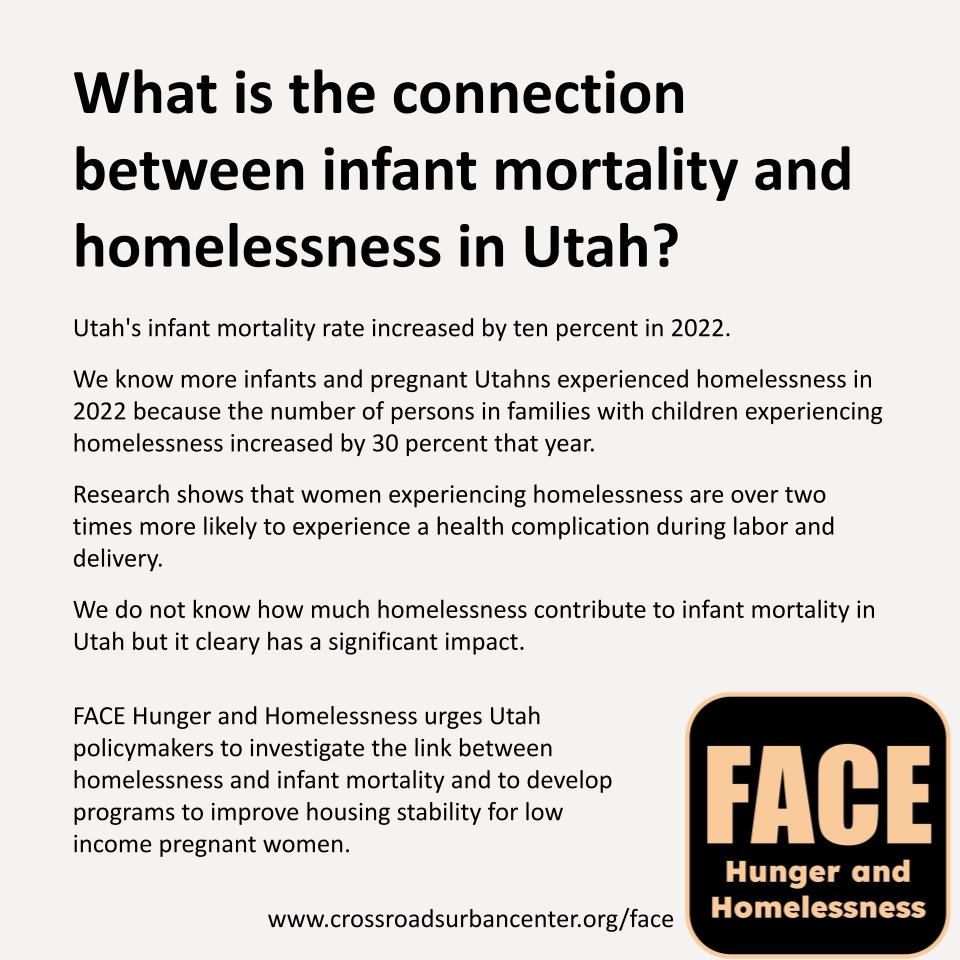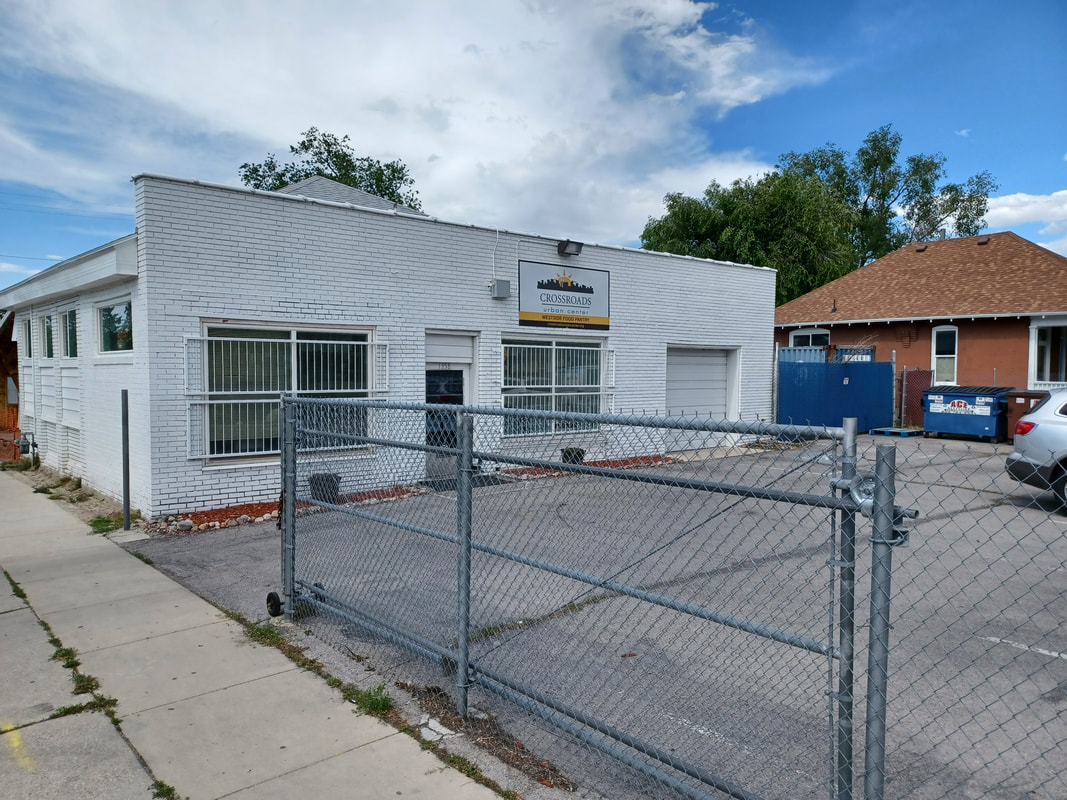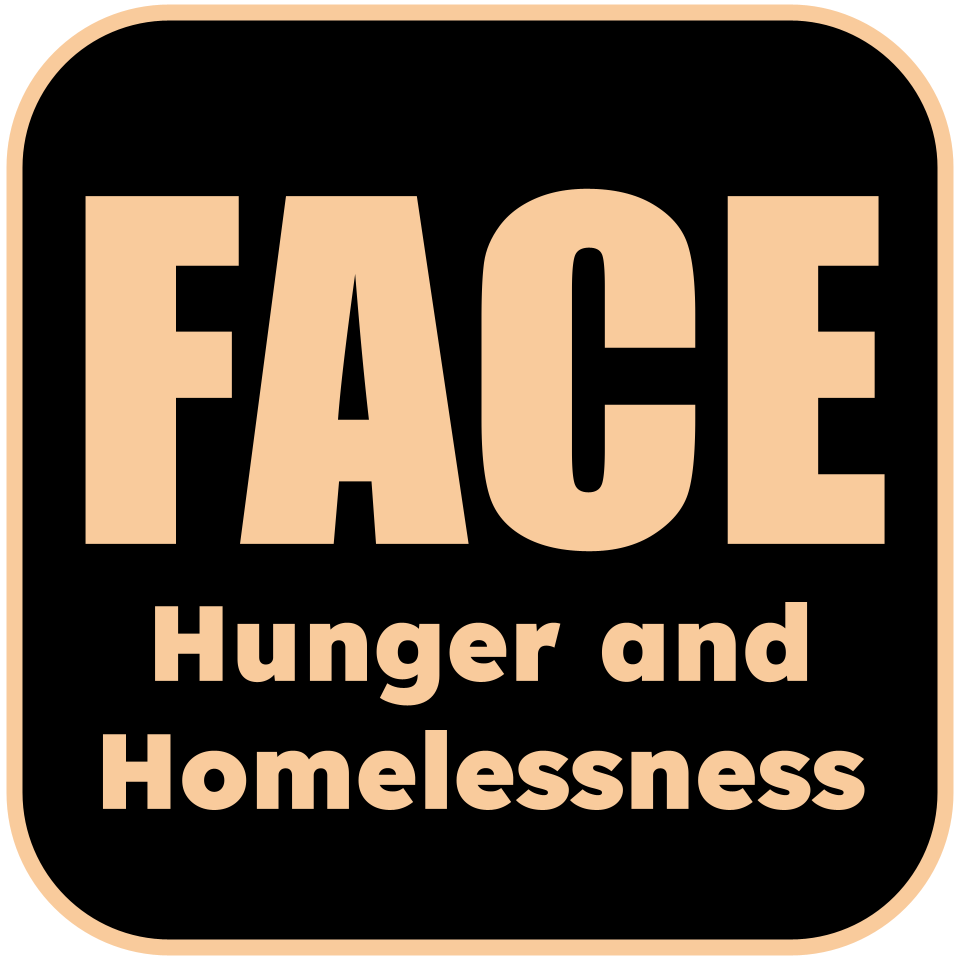Did you know that the infant mortality rate in Utah went up by ten percent last year?
This month a woman called one of Crossroads Urban Center's food pantries and asked for help. She was homeless and had recently given birth to a premature child who was staying at the newborn intensive care unit at a local hospital. The family shelter in Salt Lake County was full and she had called every resource she had been referred to in order to find a place indoors where she could live with her newborn child when that child was released from the hospital.
She is not the only person who has ever encountered this problem in our state. In Salt Lake County there are several homeless shelters but only one is allowed to make beds available to children. That means that a woman who is pregnant while staying at one shelter will need to be admitted to another shelter after she gives birth. The family shelter in Salt Lake County is consistently full and so it is unlikely a bed will be available on the day a newborn child is released from a hospital.
Unfortunately, not every pregnant person is able to get into a shelter because the shelters for childless adults are also generally full in Utah at this time. Research shows that being unsheltered while pregnant increases the risk of an infant being born prematurely and of needing to be admitted to a newborn intensive care unit for an extended period of time.
An article from Shelterforce from last year notes that, "women experiencing homelessness were more than twice as likely to experience a health complication during labor and delivery." The article notes that these averse effects disproportionately impact African American infants, "Since there are notable racial disparities in homelessness, this might be one contributor to the racial disparities in birth outcomes."
This is a problem that can solved. A study conducted in Ohio showed that when low income mothers experiencing homelessness were given assistance to stabilize their housing pregnancy outcomes improve by so much that overall Medicaid costs related to childbirth go down by an average of over $17,000 per birth. This month the United States Department of Health and Human Services released a Playbook to Address Social Determinants of Health like housing and hunger and a specific guidance on how states can use Medicaid and CHIP funds to address social determinants of health
The Faith and Advocacy Coalition to End Hunger and Homelessness urges state and local policymakers to study the links between infant mortality and homelessness and to develop programs to increase housing stability for low income pregnant women.
This month a woman called one of Crossroads Urban Center's food pantries and asked for help. She was homeless and had recently given birth to a premature child who was staying at the newborn intensive care unit at a local hospital. The family shelter in Salt Lake County was full and she had called every resource she had been referred to in order to find a place indoors where she could live with her newborn child when that child was released from the hospital.
She is not the only person who has ever encountered this problem in our state. In Salt Lake County there are several homeless shelters but only one is allowed to make beds available to children. That means that a woman who is pregnant while staying at one shelter will need to be admitted to another shelter after she gives birth. The family shelter in Salt Lake County is consistently full and so it is unlikely a bed will be available on the day a newborn child is released from a hospital.
Unfortunately, not every pregnant person is able to get into a shelter because the shelters for childless adults are also generally full in Utah at this time. Research shows that being unsheltered while pregnant increases the risk of an infant being born prematurely and of needing to be admitted to a newborn intensive care unit for an extended period of time.
An article from Shelterforce from last year notes that, "women experiencing homelessness were more than twice as likely to experience a health complication during labor and delivery." The article notes that these averse effects disproportionately impact African American infants, "Since there are notable racial disparities in homelessness, this might be one contributor to the racial disparities in birth outcomes."
This is a problem that can solved. A study conducted in Ohio showed that when low income mothers experiencing homelessness were given assistance to stabilize their housing pregnancy outcomes improve by so much that overall Medicaid costs related to childbirth go down by an average of over $17,000 per birth. This month the United States Department of Health and Human Services released a Playbook to Address Social Determinants of Health like housing and hunger and a specific guidance on how states can use Medicaid and CHIP funds to address social determinants of health
The Faith and Advocacy Coalition to End Hunger and Homelessness urges state and local policymakers to study the links between infant mortality and homelessness and to develop programs to increase housing stability for low income pregnant women.








